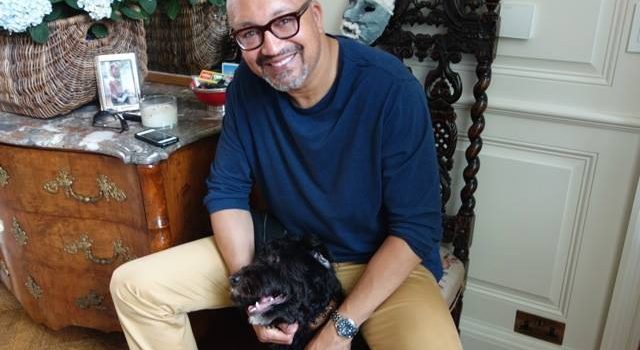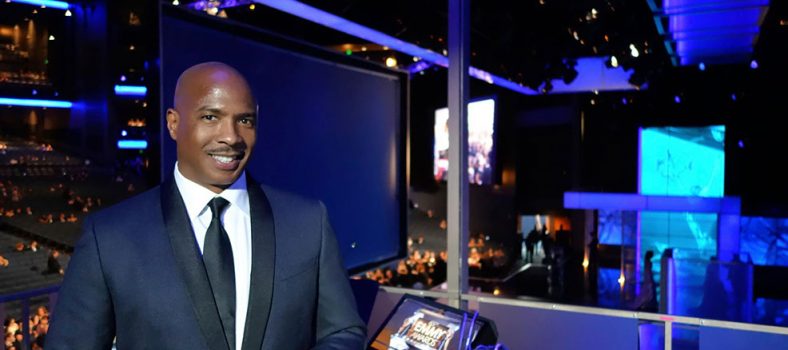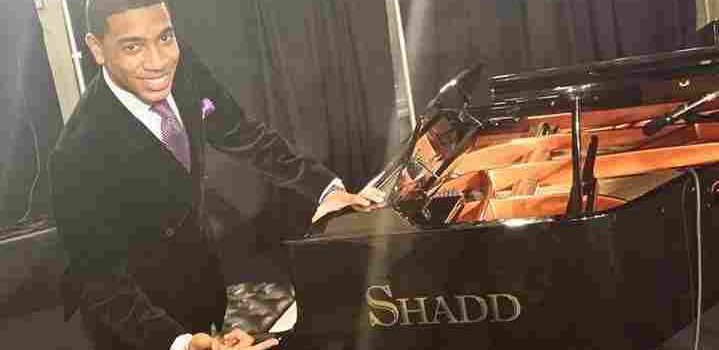Bobby Lyle learned long ago that success and longevity in the music business are directly related to versatility and the ability to constantly refine and reinvent God-given talent. Thus, in a career that has spanned some three decades, Lyle has established himself as a songwriter, producer, arranger, music publisher, sideman, bandleader, musical director and world-class performer. Audiences at home and abroad have been mesmerized by his melodic compositions and dazzling piano techniques.
Born in Memphis, Tennessee, Lyle’s parents joined the post-war flight of African-Americans from the south to urban northern cities. The family ended up in Minneapolis, Minnesota, and that’s where Lyle’s musical odyssey began. “My love affair with the piano began at age six with Mom as my first teacher,” Lyle fondly recalls. “Growing up in a climate where you have six months of winter every year provided lots of practice time.”
The resulting development eventually got him noticed by musicians and club-owners, and soon the gigs began to pour in. This “on the job” training coupled with exposure to the great jazz piano masters (Art Tatum, Erroll Garner, Oscar Peterson, McCoy Tyner, Ahmad Jamal and Hammond B-3 pioneer Jimmy Smith) advanced Lyle’s performing skills. He left college after two years, feeling that the time was right to join the mainstream of national touring musicians. The first opportunity arrived in the form of Red Holt and Eldee Young (Young-Holt Unlimited), ex-Ramsey Lewis band members, who whisked Lyle away from the Twin Cities and into the national jazz club circuit. They also exposed him to his first major studio recording on the Atlantic-Cotillion label – a precursor of things to come.
Events happened quickly from this point in the early ’70s. There was a meeting and subsequent jam session with Jimi Hendrix (who was planning on starting a jazz-rock group with Lyle and fellow Minnesotans Willie Weeks [bass] and Bill Lordan [drums] as the rhythm section before his untimely death later that year). “We were all from Minneapolis, and a friend of ours had been telling Jimi about us,” Lyle remembers. “So one day, we went to New York and just jammed. Jimi was already starting to listen to people like Miles Davis. That was an exciting time for all of us. To this day, I think about what might have been.”
Next came a permanent move (with his young family) to Los Angeles in 1974. Then a nine-month tour that same year with Sly and the Family Stone. “One of the first jobs I got after moving to LA was a touring gig with Sly Stone – the last major tour he ever did,” says Lyle. “Sly is so gifted and so talented – it was an education musically. He also loved and appreciated jazz, and that’s one of the reasons we got along so well.”
This led to a stint with the Ronnie Laws Band and later a meeting with Wayne Henderson of the Jazz Crusaders – who then took him to Capitol Records for his first solo recording deal in 1977. After three albums (The Genie, New Warrior and Night Fire), Capitol abandoned their jazz division and Lyle returned to the touring circuit, hitting the road in 1981 with George Benson. Extensive tours followed with Bette Midler, Al Jarreau, and Anita Baker (all as musical director), which covered most of the eighties.
“I was very lucky to be in the right place at the right time,” Lyle says. “When I left Minneapolis for LA, I had faith in my ability as a pianist – I knew that I could play and I wanted to expand my career, but timing had a lot to do with it.”
While performing with saxophonist Gerald Albright in 1987, Lyle came to the attention of Sylvia Rhone – then VP of Jazz and Urban music at Atlantic Records. This resulted in a recording deal in 1988 which spawned six albums in nine years including Ivory Dreams, The Journey (which became a #1 jazz album in 1990), Pianomagic, Secret Island, Rhythm Stories and The Power of Touch.
In the meantime, Lyle continued to tour with his own bands as well as with Bette Midler. He received an Emmy nomination for his musical direction on her HBO Special, “Diva Las Vegas” in 1997.
His 2004 project, Straight and Smooth, was a groundbreaking two-disc effort that featured Lyle in his classic smooth jazz format on one disc, and a mixture of jazz classics, standards and originals in the acoustic piano trio format on the other. The album made him the first artist to ever appear on both the Billboard Contemporary Jazz and Traditional Jazz Charts.
Lyle’s future plans also include breaking into film scoring and setting up musical seminars in schools and colleges to make sure future generations continue to have an awareness of America’s original art form, jazz.
“I listen to all kinds of music, and that’s reflected in the work that I do,” says Lyle. “Although I have a background in traditional jazz, this record is more focused on contemporary jazz. When I started out – with people like Grover Washington, Ramsey Lewis and Hubert Laws – we knew that we were bringing in younger listeners. Even today, I like incorporating funky beats – to keep it interesting to listeners of R&B, pop and even hip hop music. With this record, I’m going back to a more contemporary feel, but I’m still incorporating jazz elements”





